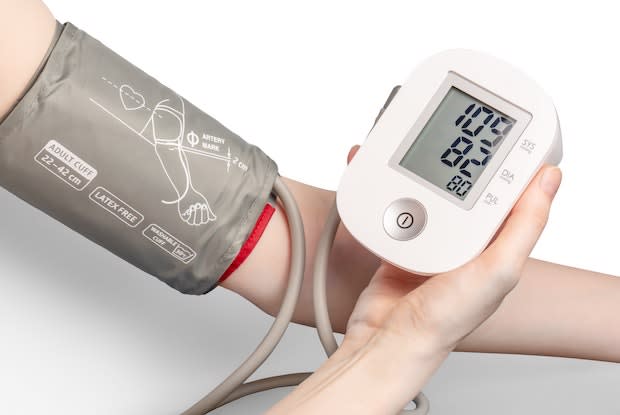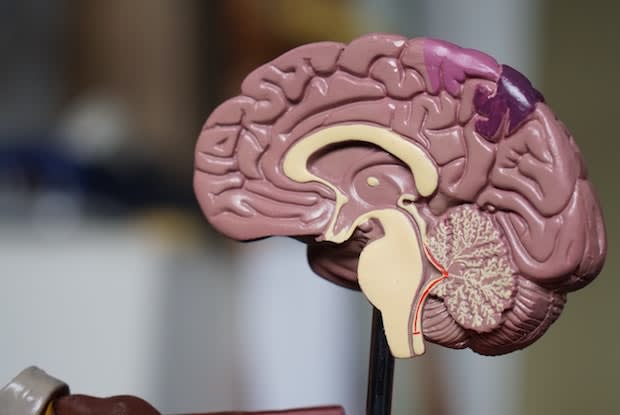Table of Contents
I. What is High Blood Pressure?
II. Does High Blood Pressure Cause Heart Attack?
a. Effects of High Blood Pressure
III. Does High Blood Pressure Cause Heart Failure?
a. Effects of High Blood Pressure
b. Symptoms of a Heart Failure
IV. Does High Blood Pressure Cause Stroke?
a. Effects of High Blood Pressure
What is High Blood Pressure?
High blood pressure (also called HBP or hypertension) is one of the most common health problems for Americans. More than 100 million people in the United States have high blood pressure. This is almost half of all American adults. [1]
Many people may be unaware that they have high blood pressure. This is because the condition is mostly symptomless, even for patients with dangerously high blood pressure. [2] Hypertension is often known as a ‘silent killer,’ and the best way to be sure that you do not have the condition is to have your blood pressure checked regularly.
For those with high blood pressure, there are several medications available to help reduce blood pressure. The most common type of medication is a diuretic (water pill) such as Lasix (furosemide), Aldactone (spironolactone), and Dyazide (triamterene HCTZ. They work by removing water from the body and preventing your body from absorbing excess salt.

Other common medications include ARBs (angiotensin-2 receptor blockers), such as Diovan (valsartan); ACE inhibitors (angiotensin-converting enzyme inhibitors such as Prinivil (lisinopril), calcium channel blockers such as Norvasc (amlodipine); or beta-blockers such as propranolol hydrochloride. There are also natural ways to lower blood pressure, including changing your diet and exercise habits.
Keep reading to learn the effects of high blood pressure on heart attack, heart failure, and stroke.
Does High Blood Pressure Cause Heart Attack?
a. Effects of High Blood Pressure
Having high blood pressure can gradually put a strain on the coronary arteries. The coronary arteries surround the heart and supply it with oxygen-rich blood and carry away oxygen-depleted blood. [3] Healthy arteries should be strong but flexible with a smooth lining to allow blood to flow through easily. However, high blood pressure can damage this lining.
Over time, high blood pressure can cause the coronary arteries to become narrow and less flexible. This damage stops sufficient amounts of blood from flowing into the heart, causing complications. These complications include chest pain (angina), an irregular heart rhythm (arrhythmia), or heart attack in severe cases. [4]
A heart attack (also called a myocardial infarction) happens when your heart is deprived of oxygen, and nutrients and begins to die. A heart attack is a death or damage to part of the heart muscle. The longer that the heart is deprived of oxygen-rich blood, the more damage is caused. [5]
b. Symptoms of a Heart Attack
There are several symptoms of a heart attack. If you notice any of the following symptoms in either yourself or someone else, then you should seek immediate medical assistance. Major heart attack symptoms include:
- Pain or discomfort in the center or the left side of the chest. This may feel like pressure, squeezing, or pain. Discomfort may last for a few minutes before being relieved and then coming back.
- Pain or discomfort in the jaw, neck, back, arms, or shoulders.
- Shortness of breath. This typically occurs with chest discomfort but may also happen separately.
- Feeling weak, faint, or lightheaded.
- Breaking into a cold sweat.
- Unusual or unexplained tiredness, especially in women.
- Nausea or vomiting, especially in women. [6]
Does High Blood Pressure Cause Heart Failure?
a. Effects of High Blood Pressure
While a heart attack occurs when your heart does not receive sufficient blood, heart failure (or congestive heart failure) is the inability of the heart to provide sufficient blood to the rest of the body. Once again, the risk of this condition is increased by having high blood pressure.

Similarly, heart failure occurs when blood vessels become narrowed or blocked. This increases the workload of the heart. In order to manage this increased workload, the heart increases in size and thickness. An enlarged heart is less efficient and needs to continue working harder to pump blood around the body. Eventually, working harder overwhelms the heart and it begins to fail. Heart failure means that the heart is no longer able to pump sufficient amounts of blood and oxygen around the body to the organs. [7]
b. Symptoms of a Heart Failure
The symptoms of heart failure vary between patients. For some patients, symptoms may be constant, while for others, they may come and go. The severity of the symptoms does not necessarily relate to the severity of heart failure. People with severe heart failure may have few symptoms, while others with a mildly weakened heart may be showing any symptoms. If you do have the following symptoms, then you should seek medical assistance:
- Fast or irregular heartbeats. This can be a sign that your heart is working faster in order to pump blood efficiently.
- Fluid retention causing weight gain, increased urination, loss of appetite, Breathing difficulties, including wheezing and coughing.
- Feeling weak, fatigued, dizzy, or confused. [8]
Does High Blood Pressure Cause Stroke?
a. Effects of High Blood Pressure
Most stroke patients also have high blood pressure and is a contributing factor in approximately half of all strokes. While damaged arteries surrounding the heart can lead to a heart attack or heart failure, stroke is often the result of weakened arteries in the brain. [9] [10]
A stroke occurs when blood vessels leading to the brain become blocked or burst. This results in part of the brain start to die, as it is deprived of blood and oxygen. A stroke can be fatal and if not fatal, can cause serious disabilities to basic activities including speech, language, vision, memory, and movement. [5] When a stroke occurs, quick treatment can lessen brain damage so every moment counts. It is important to know the symptoms of a stroke as this can help save a life. Common symptoms include: All of these symptoms occur suddenly. If you notice any of these symptoms in yourself or anyone else, then you should seek immediate medical assistance. The content in this article is intended for informational purposes only. This website does not provide medical advice. In all circumstances, you should always seek the advice of your physician and/or other qualified health professionals(s) for drug, medical condition, or treatment advice. The content provided on this website is not a substitute for professional medical advice, diagnosis, or treatment.
b. Symptoms of Stroke
